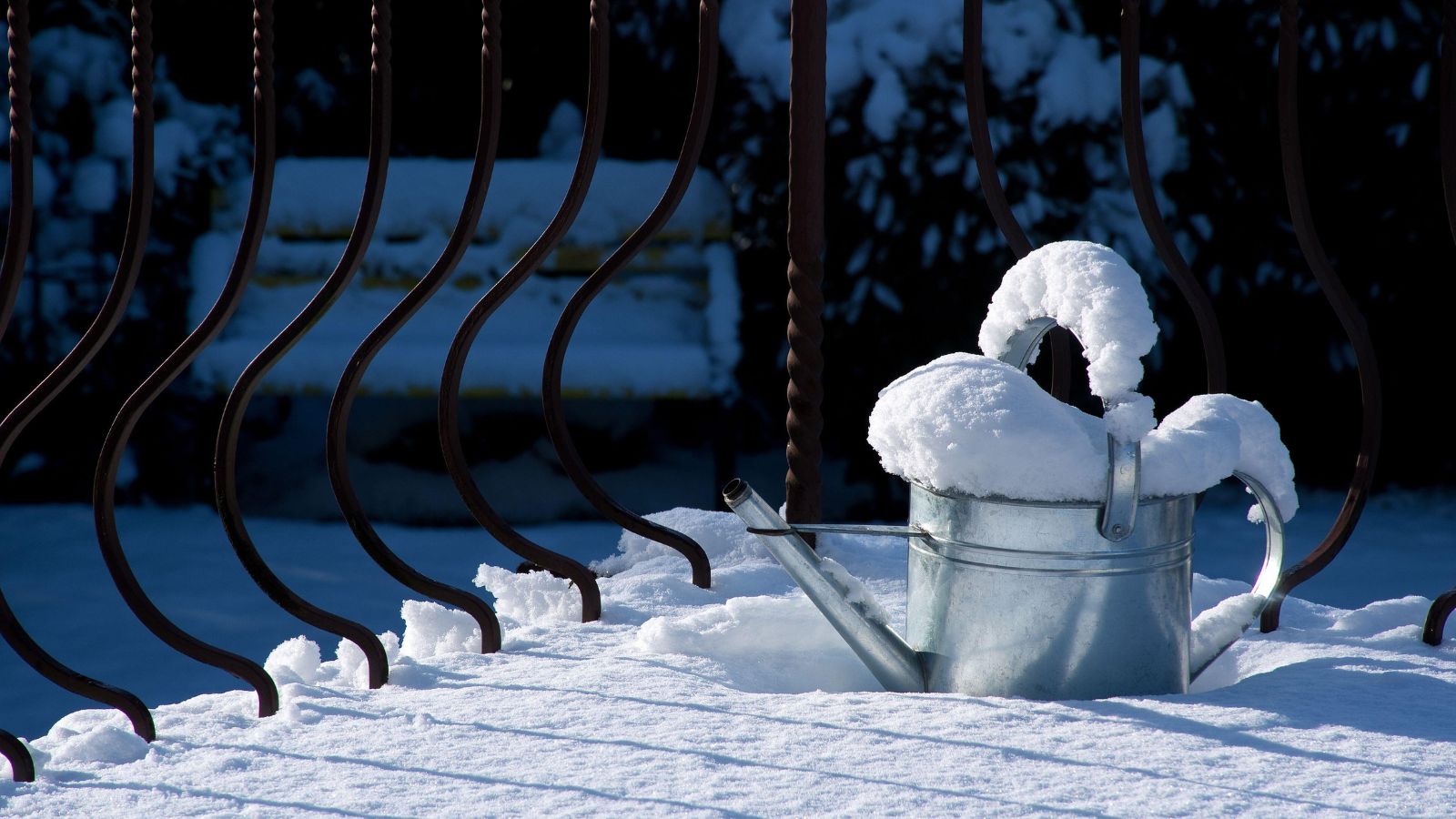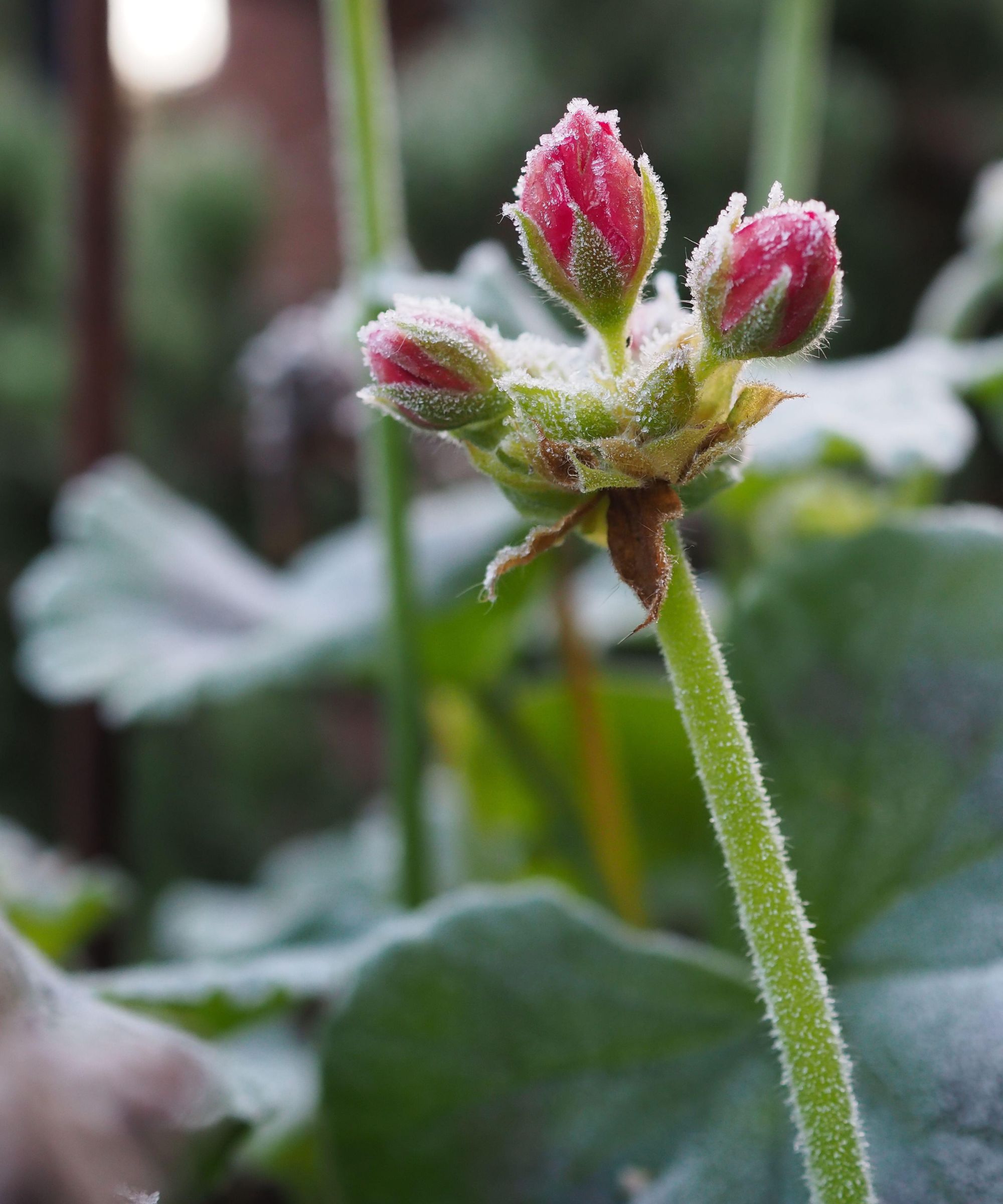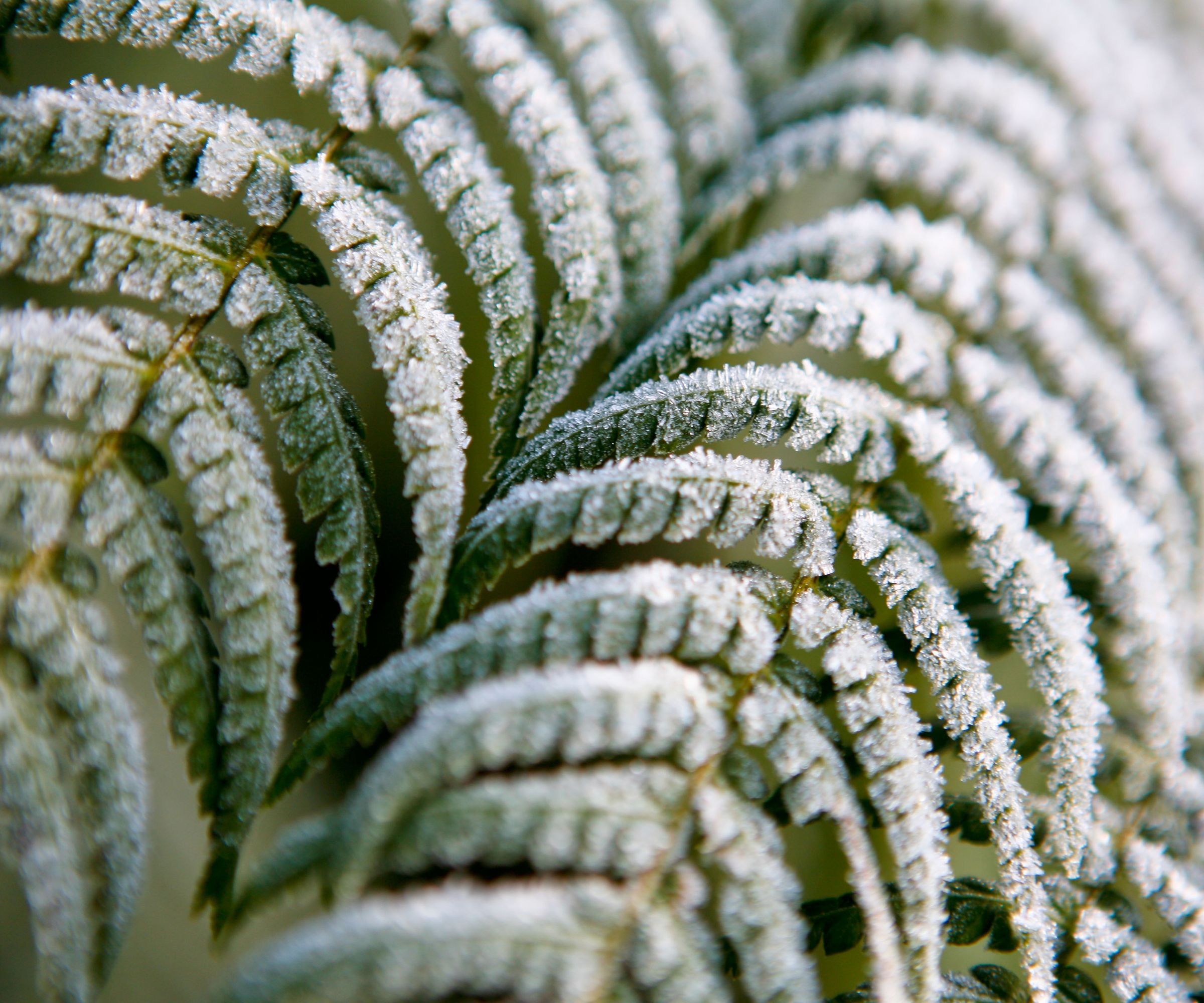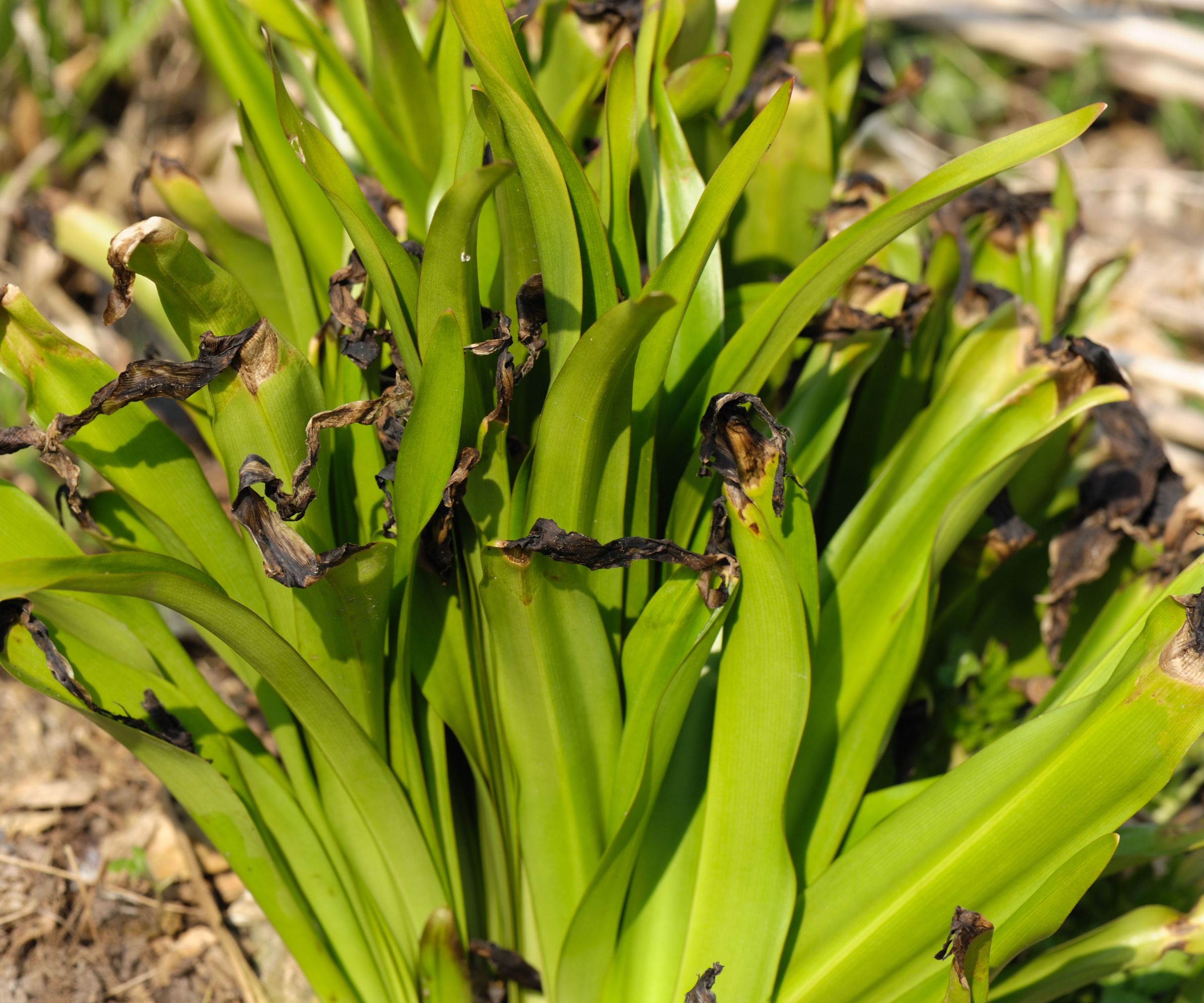Should I water my plants before a frost? Experts have these warnings to avoid frost damage
It's vital to know when and how much to water plants before and after a frost to help tender plants through winter


If you have been working on your garden all year then you may be worried about the effects of frosts on your precious plants. And you may be wondering whether you should water your plants before a frost.
If frosts are inbound, getting the watering right could be crucial to keeping tender plants alive through winter, according to experts. 'Knowing when to water plants between frosts is something all experts agree is essential,' says Rachel Crow, garden editor for Homes & Gardens. 'Moist soil holds up to four times more heat than dry soil, so, if you are in a dry climate, watering might well be necessary a couple of days before a frost is forecast. Be aware, though, that watering too little, too much or too late could cause more damage than the frost itself.'
Here, experts explain more about when to water plants around winter frosts, and how to look out for frost damage.
Should I water plants before a frost?

If you haven't protected plants from frost in your backyard with mulch or cover, and the soil is very dry, then you should aim to water them a couple of days before a frost is expected, experts suggest.
'In my opinion, you should water your plants before frost. Frost and frozen conditions can really damage a plant if they don't have enough water, as the plant is no longer strong enough to survive the cold,' says Rian Habergham, a garden expert from Leisure Bench. 'However, it's equally as important to make sure you don't over-water your plants as it is to make sure you don't under-water them. Too much water on your plants before a frost can cause damage, as it encourages leaves to freeze and negatively affects the root.
'I recommend thoroughly watering your plants the day before the night of a scheduled frost or freeze. You should do this early in the morning, once the temperature in the air outside reaches around 40ºF.'
Ensure, too, that you don't wet the leaves, which can cause further frost damage.
If you didn't get the chance to water your plants before the frost set in, then it is important to carefully add water after the frost has passed, adds Kate Turner, Miracle-Gro’s gardening guru. 'One of the problems with frost damage is that plants become dehydrated, so be prepared to do some watering once the frost has passed. After watering I would always recommend adding a layer of mulch around the plant to keep the moisture locked in and to protect it,' she suggests.
The damaging impact of frost on plants

If you have spent months bringing your garden ideas to life it is important to understand the damaging of impacts of frost so that your hard work doesn't go to waste.
There are two types of frost that can affect your yard, Kate Turner of Miracle-Gro explains.
'Frost is caused by cold, clear, still nights when the air drops below freezing. You can get a ground frost (affects lawns and roots) and an air frost (affects stems, leaves, flowers, and fruit). When soil or compost freezes for any length of time the roots are unable to take up water and the whole plant will show signs of drought and may eventually die. Water in the plant’s cells on the other hand freezes and expands, and then bursts, leaving the plant unable to take up water and nutrients.
'Short term frost damage can often be reparable but rapid thawing can be fatal as can long-term extreme frost,' Kate warns.
Signs of frost damage on plants

Knowing the signs of frost damage means you can remove irreparable plants from your plots to make space for fresh growth and tend to plants that can be revived.
'Black scorching and brown patches on leaves are tell-tale signs of frost damage,' says Miracle-Gro's Kate Turner. 'Wilting, and shrivelling leaves turn black, and the stem of the plant tips over. You’ll also notice your plants being pushed up from the soil in the ground.'
If your plants do suffer frost damage, then it is important to not prune any damaged leaves right away. 'Don’t prune out damaged growth until the risk of frost has definitely passed, otherwise, you risk exposing any new growth to damaging spring frosts,' Kate warns. The chances are the roots and stem of the plant are still healthy so continue to water your plant as normal until spring.
The good news is that it is relatively simple to protect plants from frost damage on the surface. In fact, you can even use a bed sheet to protect plants from frost at a pinch. 'It’s never too late to wrap fleece around your plant!' Kate advises.
What temperature is too cold to water plants?
Sustained temperatures below 40ºF is often considered to be too cold to water plants. 'Sustained cold snaps will freeze ground water making it unavailable to plants,' explains Rachel Crow, garden editor for Homes & Gardens. 'You should try to water plants a day or so before forecasted freezes to give the roots time to absorb water and nutrients.'
Does spraying plants with water help after a frost?
If a plant is still covered in frost crystals after the harsh frosts have passed, you can use a small amount of water to wash the ice away. This is often considered more beneficial than letting the sun melt the ice naturally which can lead to irreversible frost damage to leaves, flowers, and stems.
Sign up to the Homes & Gardens newsletter
Design expertise in your inbox – from inspiring decorating ideas and beautiful celebrity homes to practical gardening advice and shopping round-ups.

Chiana has been at Homes & Gardens for two years and is our resident 'queen' of non-toxic living. She spends most of her time producing content for the Solved section of the website, helping readers get the most out of their homes through clever decluttering, cleaning, and tidying tips. She was named one of Fixr's top home improvement journalists in 2024.
-
 Drew Barrymore creates a 'balanced' kitchen in 4 easy steps – her rules will make your small, compact countertops feel beautiful
Drew Barrymore creates a 'balanced' kitchen in 4 easy steps – her rules will make your small, compact countertops feel beautifulDrew proves that with the right styling (and chic appliances), you can make even the smallest of kitchens look harmonious
By Hannah Ziegler Published
-
 5 key trends from Milan Design Week that are going to change the design direction of 2025
5 key trends from Milan Design Week that are going to change the design direction of 2025From floating furniture to silvered surfaces, here's my perspective on the key themes and new moods coming through from Milan Design Week 2025
By Pip Rich Published